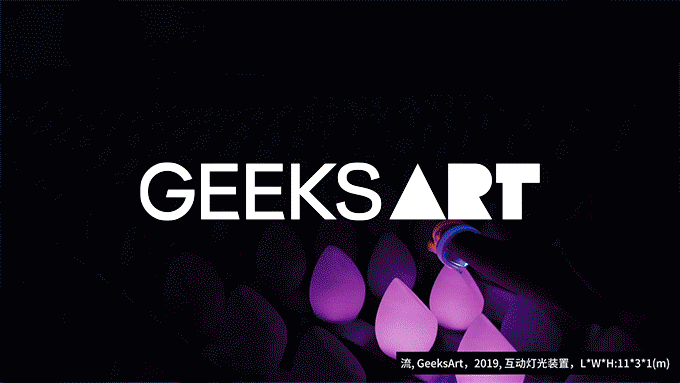
▲ 建筑立面:微微敞开的“漂浮盒子”与黑镜反射出的“Becó” The facade of architecture:Slightly open “floating box” and black mirror reflecting “Becó”
旧街
Old street
南宋时期,中山中路又称御街,是杭城最重要的街区之一。民生兴旺,商业繁昌的景象一直延续至上世纪90年代。21世纪初,杭州商业核心区随着城市的发展而转移,中山中路成为了老城区内一条以步行为主的街道,赋存着老杭州的人文陈迹。
Known as Imperial Street, Middle Zhongshan Road was one of the most important streets of Hangzhou in Southern Song Dynasty. The prosperity and flourishment of this busy street lasted till the 1990s. In the early 2000s, with the business core area shifted, Middle Zhongshan Road became a pedestrian street in the old town where culture relics of old Hangzhou remains.
▲ 建筑入口与沿街立面 The entrance and street facade of architecture
本项目便位于中山中路295号,临近积善坊巷,既存建筑周围“拥簇”着许多商铺旧屋,市井气息浓郁。此次设计改造包括建筑立面、室内及部分展陈道具,完成后的Becó 295将承担独立设计师品牌零售、展览、工作坊及咖啡等功能。
Our renovation project is located at No. 295, Middle Zhongshan Road, near the Jishanfang Alley. The original building was surrounded by shops and old houses with vigorous vibes of business and daily life. The renovation includes the elevation, interior and some display props. On completion, it became Becó295 undertaking the function of designer select store, showroom, workshop and cafe etc.
成像的秩序
Order of imaging
在设计初期,间筑了解到老屋起初为杭州最早的照相馆之一,且与相馆创始人的祖宅仅相隔百米。身处其中,使人不禁遐想那些曾于此处记录过的烟尘往事,而空间本身的特殊格局也让我们联想到照相机的成像原理,这亦成为了项目的关键切入点。
At the beginning of design, TEAM_BLDG learned that the old building was originally one of the earliest photo studios in Hangzhou, and it’s only 100 meters away from the ancestral home of the studio founder. In the building, we couldn’t help imagining the past events that were recorded here. The special pattern of the old space reminded us of the camera imaging principle and it became the key to our design.
▲ 光学成像意向图 Intention of Optical Imaging
此外,基地前身为KTV兼酒吧,其内部被划分出的一个个或方或长的小房间自然无法满足买手店的功能需求。如何使店铺的众多功能区在改造后得到合理布置,亦是本次设计需要解决的问题。
Before renovation, the old space was a KTV and bar. The interior was divided into small rooms either square or long which unable to meet the functional requirements of a select store. It was also our job to solve the problem in renovation to make reasonable arrangements for multiple functional areas of the store.
▲ 项目手绘草图 The Sketch
一重成像:入街
The first order of imaging: blending into the street
沿街立面的设计意在使建筑从周围较为均质的商铺群中跳脱出来。我们在原有立面的基础上增置片墙,将其旋转20度,形成了一道“开口”。入口上部空间相对完整,仿佛是一只微微敞开的“漂浮盒子”。简洁的涂料饰面与周围建筑形成反差,使人远远便能望见买手店的所在。
The design of the facade along the street is intended to make the building standing out from other shops around it. On the basis of the original facade, we added a wall and rotated it by 20 degrees to form an “opening”. The upper space of the entrance is relatively complete, like a slightly opened “floating box”. The simple paint finish contrasts with the surrounding buildings, so that the select store can be seen from a distance.
▲ 立面设计使空间从周围均质化商铺中跳脱出来 The design of the facade along the street is intended to make the building standing out from other shops around it
待人走近时,又会发现“盒子”暗藏的玄机。原本藏在片墙反面的LED发光字体,通过黑色镜面清晰地反射了出来。仔细观察,才会发现眼前所见的“Becó ”仅是镜中虚像。亦真亦幻的效果为到达的访客带来视觉冲击,让好奇心引人入店。
When people approach, they will find the hidden mystery of the “box”. The LED glowing fonts hidden on the back of the new added wall is reflected through the black mirror clearly. Careful observation will reveal that “Becó” is only a virtual image in the mirror. The combination of real and insubstantial brings visual impact to the visitors which arouses the curiosity and bring them into the store.
业主曾向我们表达,希望入口空间能以“活”的状态吸引人群,而不仅仅是一扇门、一块招牌。通过对店铺功能的梳理,我们利用“半开放”的建筑语言模糊室内外边界,使买手店入口与中山中路相互融合。访客拾阶而上进入缘侧空间,向内望去,咖啡区与入口相连,不锈钢吧台与微水泥饰面营造出简单现代的视觉印象,售卖区藏匿其后。白天,咖啡区提供饮品轻食;到了夜晚,空间便可作为酒吧使用。与街道相揉的布局给予了建筑相应的公共性,使之成为一处兼具视、用、停留与共享的场所。同时我们留意到,在杭州的许多老街巷弄,人们得闲时喜好聚在家门前喝茶、下棋,这种习惯亦与“活”的状态息息相通。
The owner once expressed her hope that the entrance space should attract the passers-by in a “live” way, rather than just a door or a signboard. By sorting the functions of the store, we managed to blur the boundary between indoor and outdoor with the architectural language “semi-opening” , so that the entrance of the store could blend into the Middle Zhongshan Road. Step up into the engawa space and look inside, you will see the cafe area connected to the entrance. Stainless steel bar together with the micro-cement finish create a simple but modern visual impression. And the sales area is hidden behind it. During the day, drinks and light meals are served in the cafe area. At night, the space can be used as a bar. The layout integrated with the street makes the building a public place for viewing, using, staying and sharing. Meanwhile, we have noticed that in many old streets and lanes in Hangzhou, people like to gather in front of their houses for tea and chess in their spare time. This habit is closely related to the “live” status.
▲ 可看、可用、可停留的店铺入口 The entrance that can be seen, used and stayed
此外,我们在入口处再次借助成像原理,设计了使人不易察觉的细节:镜面玻璃上显现出的“295”标识,实则是源自不锈钢字体背后LED散发出的光源。与此同时,两扇镜面玻璃上微弱映射着中山中路的街景,人群走过的虚影与店内铺陈形成互动,在原本狭长的空间内增添生动感。
Besides of that, a subtle detail is designed at the entrance based on the imaging principle. The “295” logo on the mirrored glasses actually comes from the light emitted by the LED on the back of the stainless steel font. The street view of Middle Zhongshan Road is faintly reflected on two mirrored glasses. Reflections of passers-by interact with the shop display, bringing vitality to the original narrow space.
▲ 入口玻璃反射出“295”与中山中路街景 “295” and the street view of Middle Zhongshan Road are reflected on the glass at the entrance
▲ 咖啡区 Coffee area
▲ 以玻璃区分咖啡区与买手店空间 Glass separates the coffee area from the select store
二重成像:镜物
The second order of imaging: objects in the mirror
与业主初涉现场时,建筑北侧的短巷让人过目难忘。“Becó ”在葡萄牙语中意为“巷子”,是品牌未来的发展线索,而“巷子”亦成为了售卖与展览空间内的“点睛之笔”。
When TEAM_BLDG first visited the site with the owner, we found the short alley on the north side of the building quite impressive. The store name“Becó ” means “alley” in Portuguese which contains clues to the future development of the brand. And “alley” has become the “finishing touch” in the sales and display space.
▲ 光学成像分析图 The Diagram of Optical Imaging
▲ 店铺内镜面折射出的巷景 The scenery of alley reflected on the mirror in the store
短巷与建筑北侧相接,藏匿在几幢旧屋后方,需绕行才可抵达。如何使人群在空间内部,甚至沿街面即可以感知到巷子的存在,是设计思考的重点。我们在一层北侧的窗洞旁置入一面与之夹角45度的黑镜,窗外巷景映于黑镜之上,使巷子与入口之间形成了一道视觉的缔连。以此镜面折射,影影绰绰的老巷与陈列区交织呈现,虚实错落,为空间注入时间的层次感与视觉的趣味性。
Hidden behind couple of old houses, the short alley is connected to the north side of the store and can only be reached by a detour. It was the focus of our design thinking to make it possible for people to be aware of the alley when inside the space or even at the entrance along the street. A black mirror is placed next to the window on the north side of the first floor, with an angle of 45 degrees so that the view of the alley outside the window would be reflected on the black mirror, which creates a visual connection between the alley and the entrance. The shadowy view of old alley mingles with the display area by mirror refraction, which flavors the space with visual interest and sense of time.
▲ 在短巷内展现的店铺图景-1 Store imaging in the short alley -1
▲ 在短巷内展现的店铺图景-2 Store imaging in the short alley -2
同样的镜面手法亦用于更衣室中,更为多元的镜面角度在其内部折射出丰富的空间维度,为试衣的访客增添一丝惊喜。
The same mirror trick is also used in the dressing room. Multiple spatial dimensions are created by complex mirror angles, bringing surprise to the customers who enter the room.
▲ “棱镜”更衣室 “Prism” locker room
三重成像:箱盒
The third order of imaging:The box
Becó295的一层空间整体开敞,仅以地面标高划分南北两个功能空间。穿过入口咖啡区,来到独立设计师集成区,陈列方式以悬挂为主,同时定制展台如岛屿散落在此区域。南侧则整体下沉30公分形成了一个“独立”空间,承担展览与活动功能。我们在此处置入旋转楼梯,作为方正“盒子”内的视觉焦点,同时也是活动时的“演讲台”。
The ground floor of Becó295 is open as a whole space. the two functional spaces of north and south are divided only by ground elevation. Cross the cafe area at the entrance, visitors come to the integration zone of independent designers where products are displayed by hanging mostly and customized stands are scattered like islands. With a 30 centimeter’s subside, the south side became a separated space of display and event. A spiral staircase sits here as a visual focus of this square box and as a podium in events.
▲ 由室内高差划分出的两个功能区 Two functional areas divided by height difference
▲ 旋转楼梯成为视觉焦点 The spiral staircase becomes a focal point
▲ 挑空结构将窗外阳光引入一层 The void structure brings sunlight from the window to the first floor
二层为主题陈列与贵宾区。拾级而上时,旋转楼梯的形态会遮蔽部分视线,激发人更多的好奇心与探索欲。二层中央为挑空设计,将窗外的自然光线尽可能多地引入一层,同时形成单进单出的折返动线,刻意限定了人群走向“盒子”内部的体验过程——由窄巷般的通道拐入相对开敞的空间。
The second floor works as the thematic display and VIP area. When climbing up, the shape of the spiral staircase blocks part of the view, stimulating desire for exploration. With the void structure of the second floor, natural light is brought into the ground floor as much as possible while the turn-back moving line is limited to single-in and single-out. As a result, the experience of going to the inside of the “box” is set to turn from a narrow alley-like passage into a relatively open space.
▲ 旋转楼梯-1 Spiral staircase-1
▲ 单进单出的人行动线 The turn-back moving line is limited to single-in and single-out
▲ 挑空结构将访客引入“盒子”空间内部 The void structure leads visitors into the interior of the “box” space
▲ 挑空结构引发视线穿插 The void structure causes the sight to penetrate
二层相对自然光充沛,除可调节的导轨射灯外,我们也将部分光源嵌入墙面内部,层层光线通过折射,为室内营造出通透柔和的氛围。东侧镜面门内反射的景象,亦为空间增添了纵深感。另一方面,改造设计保存了二层原始的屋顶结构,裸露的桁架与玻璃,水泥自流平材质等新旧兼糅,呈现出属于不同时期的氛围对比。
On the second floor, there’s plenty of natural light inside the room. Part of the lights are embedded into the wall as supplements to the CDM-TD spot lights. With layers of soft lights refracting, the room looks bright and transparent. And the visual depth is increased by the internal reflection of the mirror door on the east side. On the other hand, original roof structure of the second floor is preserved in the renovation. Bare truss and glass, cement self-leveling materials, etc., old ones mixed with the new ones, presenting the comparison of the atmosphere belonging to different times.
▲ 新旧材质在空间内兼糅 New and old materials are mixed in the space
▲ 镜面设计增加空间的进深感 The mirror increases the depth of the space
▲ 内嵌光源营造出柔和的室内氛围 Built-in light sources create a soft interior atmosphere
不足与难点
Shortcomings and difficulties
在早期拆除墙体时,我们看到老屋最初的印记:红砖砌成的墙柱暴露在外。建筑师原本希望可以把这种粗粝的质感保存下来,但由于对买手店整体调性的把控,我们最终没有将红砖呈现出来。此外,从完工后的效果来看,建筑师认为旋转楼梯的设计有欠斟酌,它或许应以更加克制的状态出现在空间内部。
Back to the days when the walls to be demolished, the exposed wall column made of red bricks laid before us as the original mark of the old house. The architects hoped to have the rough texture preserved in the renovation at first. Out of the consideration of the tonality of the select store, the red bricks have not been shown in the end. Other than that, our architects think that it would be more appropriate if the spiral staircase presented inside the space in a way more restrained.
Becó295的设计过程相对顺利,但在施工阶段,受现场工人作业水平所限,许多细节做不到位,反复进行调整与修正,使得工期产生了不必要的延长。
The design of Becó295 went along quite well. As to the construction, many details couldn’t be delivered properly due to the limitation of worker’s skill. Repeated adjustment and correction resulted in an unnecessary extension of the project timeline.
▲ 空间细部 The details of the second floor
▲ 室内空间与窗外老房屋檐辉映 The interior space contrasts with the eaves of the old house outside the window
中山中路丰富的街巷尺度承载着人们对于老杭州的记忆,我们希望走入Becó295的人们,可以借助新旧并置的空间图景,从不同的角度感受城市潜影。
The various street scales of Middle Zhongshan road remind us of old Hangzhou. It’s our hope that given the spatial picture of the coexistence of old and new, people walking into Becó295 could experience the city from a different angle.
▲ 1F PLAN 一层平面图
▲ 2F PLAN 二层平面图
▲ SECTION A-A A-A剖面图
▲ SECTION B-B B-B剖面图
▲ NORTH ELEVATION 北立面图
▲ EAST ELEVATION 东立面图
▲ DETAIL DRAWINGS OF THE WALL 墙身详图-01
▲ DETAIL DRAWINGS OF THE WALL 墙身详图-02
项目信息——
Project info——
项目名称:景巷 | 杭州Becó295买手店及创意空间
功能:买手店,展览,咖啡
设计时间:2020.10-2020.12
施工时间:2020.12-2021.06
地点:杭州市中山中路295号
建筑面积:318.3平方米
团队:肖磊,滋埜悠司,王子朋,施佳欣
合作:N/A
业主:Becó295
类型:室内及外立面改造
状态:建成
摄影师:雷坛坛
摄影助理:Wai Wai
Project Name: Scenery Alley | Hangzhou Becó295 select store and creative space
Function: select store, exhibition, coffee
Design Period: 2020.10-2020.12
Construction Period: 2020.12-2021.06
Location: 295 Middle Zhongshan Road, Hangzhou, China
Building Area: 318.3SQM
Architects: Xiao Lei, Shigeno Yuji,Wang Zipeng, Shi Jiaxin
Collabrations: N/A
Owner: Becó295
Type: Interior and exterior facade renovation
Status: Completed
Photographs: Jonathan Leijonhufvud
Assistant Cameraman: Wai Wai
关于事务所 | TEAM_BLDG
间筑设计(TEAM_BLDG)成立于 2012 年,工作领域涉及建筑、空间、景观和产品设计。事务所的两位创立者认为,“BLDG”虽意为楼宇但更是一个动词,代表着“建造”的过程,设计概念的完成只是建筑师工作的起点,相对于表达设计理念与确立设计风格,他们更关注建筑和空间、室内和室外所营造的氛围以及带给人的感受。
TEAM_BLDG was founded in 2012, they work with architecture, interior, landscape and product. The two founders of the studio consider that the word “BLDG” is a verb than the meaning of architecture, which should be the processing of constructing, and the finished design is just a start of architects’ work. Relative to any concept or style, they are more focusing on the “atmosphere” of building and space, interior and exterior for people.













































